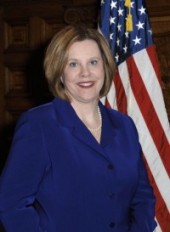Problems with insurers’ contracts with physicians — and with their provider networks — are likely to spark legislation in the upcoming General Assembly session, a key state senator said Monday.
State Sen. Dean Burke (R-Bainbridge), who chaired a legislative study committee reviewing insurer networks and contracts, told GHN that the panel’s work may lead to three separate bills in the Legislature next year.
The panel, which included medical providers and representatives of an insurance company and a consumer group, concluded its work Monday, voting unanimously to approve a report on its findings.
The report comes as the National Association of Insurance Commissioners (NAIC) recommends new standards to address complaints from consumers about limited access to doctors and hospitals in health plans sold under the Affordable Care Act.
An August report found that Georgia had the highest percentage of “narrow’’ insurance networks in the 2014 health exchanges. Five of six Georgia “Silver” exchange plans last year had medical provider networks with a limited choice of doctors, the report said.
Narrow networks were on the increase before the ACA was enacted in 2010, but they have become considerably more prevalent since it took effect.
Another common complaint among consumers is that insurance companies’ directories of health care providers are often out of date. That means patients may end up choosing a health plan that doesn’t fit their needs, consumer advocates say.
Richard Novack, with insurer Cigna, acknowledged at the hearing that “there’s an issue around transparency and notification. Those are easy fixes.’’
But Novack also said that insurers must be able to offer limited-network plans in order to hold down the costs of insurance. Employers and consumers, he said, “are screaming about costs.”
The NAIC proposals, presented in the form of a “model” state law, would require that insurers have enough doctors and hospitals in their networks to provide all covered services to consumers “without unreasonable travel or delay,” the New York Times recently reported.
The new rules would help protect consumers against exorbitant costs if, for some reason, they receive care from doctors or hospitals that are not in the insurer’s network, the Times reported. Patients are typically required to pay more of the bill if they receive care outside their network.
“Consumers need clearer standards, and a better ability to navigate in the new world,’’ Cindy Zeldin of the consumer group Georgians for a Healthy Future told the Senate study panel before its vote Monday.
The Georgia panel also tackled complaints that health plans sometimes use discounted fees for paying doctors without first notifying the physicians, so that the doctors get less reimbursement than they expected. A Senate bill earlier this year would have required more oversight of “rental networks” involved in this practice.
Other complaints focused on insurers’ use of contract language that basically forces doctors who are in a health plan’s network to participate in all of the plans offered by that insurer.
“Providers in this state are highly disadvantaged,’’ said John Crew of Strategic Healthcare Partners, which consults for hospitals and doctors in Georgia. “We do need legislation. We’re faced with consolidation in this state. This issue will grow exponentially.”
Dr. Manoj Shah of Warner Robins said broader provider networks work better for consumers and doctors.
After the meeting, Sen. Burke told GHN that many providers in rural areas, in small or solo practices, “have very little leverage in contract negotiations.”
The executive director of the Georgia Association of Health Plans acknowledged that insurers could help improve the accuracy of provider directories.
But Graham Thompson pointed out that cost is an essential factor in people gaining health insurance. “What we’d like to see is appropriate focus on affordability,’’ he said. “The plans should have the flexibility to offer that choice [of a narrow network] to consumers and employers.”
After the panel vote, State Sen. Renee Unterman (R-Buford) called for further action on balance billing.
Balance billing occurs when a hospital, physician or other health care provider sends a bill to a managed-care patient after the patient’s health insurer has paid its share. The patient owes the balance.
When an out-of-network provider handles part of a procedure for a managed-care patient, it may charge an out-of-network rate, which is usually higher than the provider in the patient’s network charges. The result is that the patient gets a large, unexpected bill.
“That’s what, in my opinion, is harming consumers,’’ Unterman said. “Consumer credit ratings are getting hurt. Balance billing is a key component of the crisis we’re in.”




